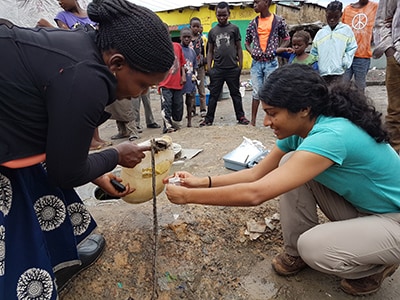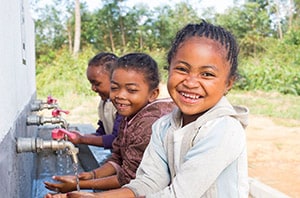At a glance
CDC works with global partners to track cholera cases, investigate and respond to outbreaks, and put in place strategies and programs to prevent and control cholera.

Working to end cholera
For over half a century, CDC has worked with partners to prevent, detect, and respond to cholera outbreaks around the world. CDC evaluates, adopts, and promotes the most effective ways to prevent and control cholera.
When requested, CDC provides expertise to local governmental and nongovernmental partners to investigates cholera outbreaks in:
- Urban and rural communities
- Schools
- Healthcare facilities
- Prisons
- Humanitarian emergencies
CDC trains laboratory workers on techniques to identify cholera bacteria and educates communities on ways to prevent cholera.

Partnering with others
CDC is a founding member of the Global Task Force on Cholera Control (GTFCC). The task force, a partnership with over 50 members, coordinates efforts to control and end cholera deaths. It includes governmental and nongovernmental organizations, academic institutions, and UN agencies.
CDC experts serve on various GTFCC task force working groups. The groups focus on oral cholera vaccines, laboratory techniques, and water, sanitation, and hygiene (WASH).
In October 2017, GTFCC launched Ending Cholera: A Global Roadmap to 2030. It is a comprehensive plan to reduce cholera deaths by 90% by 2030. It aims to protect millions of people from cholera illness and death and reduce the number of cholera outbreaks. It also accelerates efforts to reach people most in need of safe water and sanitation.
Preventing cholera
CDC collaborates with partners to improve water, sanitation, and hygiene conditions globally to prevent and reduce the spread of cholera and other diarrheal diseases.
CDC works with countries and global partners to prevent and control cholera with oral cholera vaccines.
